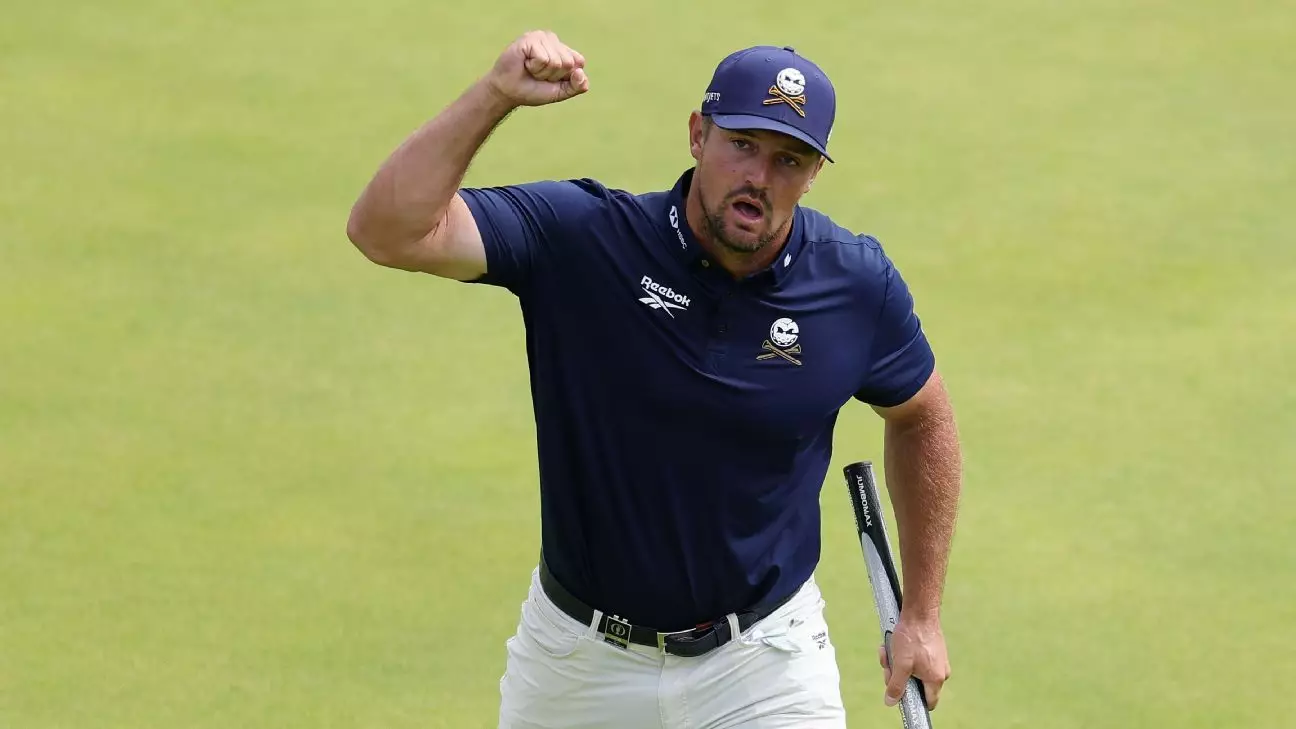Bryson DeChambeau’s recent performance at the Open Championship exposes more than just a fluctuating golfer; it reveals the complex narrative of perseverance within American golf’s modern landscape. Starting the tournament with a humiliating 78, DeChambeau’s subsequent three rounds under par is less about technical skill and more about resilience—a trait that contrasts sharply with the sport’s obsession with consistency and perfection. His turnaround, capped by a stellar 64 on Sunday, underscores an anxious obsession with self-improvement and the relentless pursuit of a comeback, which is both admirable and emblematic of the emotional rollercoaster many American athletes ride. His ability to transform a disastrous beginning into a top-tier performance speaks to the layered nature of sports—where grit and mental fortitude often outweigh raw talent alone.
Celebrating the Power of Individuality in a Team-Driven Sport
DeChambeau’s comments on team golf and Ryder Cup tactics reflect a broader cultural debate surrounding individualism versus collectivism in American sports. His assertion that players should “be the best individual they can be” is a defiant embrace of personal agency, especially in a sport that traditionally venerates strategic cohesion. While some may dismiss this as self-centeredness, it instead illustrates an evolution—where athletes like DeChambeau challenge conventional team dynamics and advocate for personal excellence as the foundation of collective success. This perspective resonates with a progressive ethos supporting individual freedom within structured systems, fostering innovation and authenticity rather than conformity.
Strategic Ambiguity and Leadership: The Ongoing Saga of Captain Bradley
The ongoing debate over Keegan Bradley’s potential role as both captain and player encapsulates the ambiguity surrounding leadership in American golf. His cautious stance—”nothing about picking players will be easy”—reveals a leader aware of the high stakes and the weight of expectations. Yet, his willingness to consider playing underscores an admirable humility, acknowledging the importance of meritocracy over ego. This nuance highlights a broader truth: effective leadership involves flexibility, listening, and adapting to the dynamic nature of team sports. Bradley’s approach—particularly his gesture of giving motivational tokens—embodies the modern leader who values emotional intelligence as much as strategic mastery. In a time where American sports often oscillate between hyper-competitiveness and collaborative spirit, Bradley’s approach offers a nuanced model that balances confidence with empathy.
The American Spirit: A Complex Blend of Pride and Frustration
DeChambeau’s declaration that “we’re tired of losing” encapsulates a simmering frustration that fuels a desire for change. It’s a sentiment shared across American sports landscapes—long plagued by a narrative of underachievement despite abundant resources and talent. His words reflect an urgent call to action, hinting at a collective longing to reclaim dominance on the global stage. However, this frustration also risks veering into harmful obsession if not tempered by realistic strategies for sustainable growth. That said, it signals a crucial shift: a more emotionally honest and open acknowledgment of setbacks, which can serve as catalysts for meaningful reform. The key lies in transforming this collective impatience into constructive evolution—rethinking how excellence is cultivated and celebrated in American golf.
Reimagining American Golf’s Future: Balance Between Individual Brilliance and Team Unity
Ultimately, the scene struck at the Open Championship underscores the ongoing struggle in American golf to reconcile individual brilliance with cohesive teamwork. DeChambeau’s personal resilience, Bradley’s leadership style, and the team’s collective frustration all point toward a broader necessity: embracing complexity rather than oversimplified narratives of victory. In a sport that privileges precision, strategy, and mental toughness, the true challenge extends beyond tactics; it involves cultivating a cultural ethos that values both individual agency and shared success. As American golf attempts to reclaim its competitive edge, it must navigate these intertwined themes—recognizing that progress demands not just extraordinary talent, but also emotional resilience, strategic humility, and a humanistic approach to leadership and teamwork.

Leave a Reply